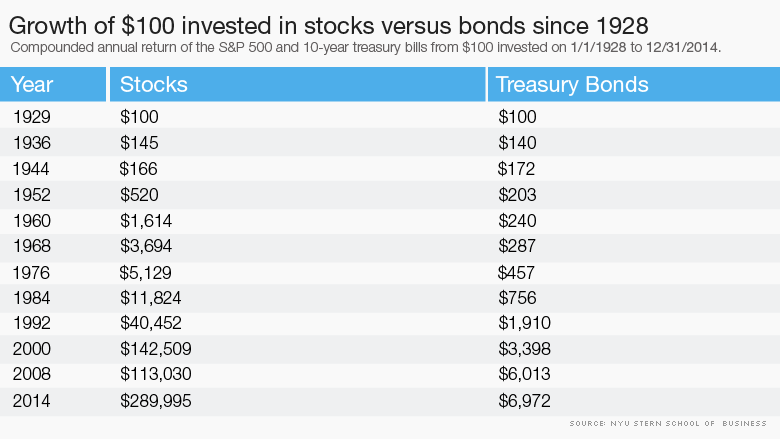
Looking for more money for your retirement?
Who isn't? This study reveals that there is one sure-fire way to get it.
The study
Last year, the National Bureau of Economic Research with professors from the University of Pennsylvania, George Washington University, and North Carolina State University, released a study entitled "Financial Knowledge and 401(k) Investment Performance."
In it the authors found that individuals who had the most financial knowledge -- as measured through five questions about personal finance principles -- had investment returns that were on average 1.3% higher annually -- 9.5% versus 8.2% -- than those who had the least financial knowledge.
While this difference may not sound consequential, the authors noted that it "is a substantial difference, enhancing the retirement nest egg of the most knowledgeable by 25% over a 30-year work life."
Related: The Secret to Becoming a Successful Investor
Yes, knowing the answers to five questions had a direct correlation to having 25% more money when you retire.
So what are those questions? For example, and for the sake of brevity, here are the first three:
- Interest Rate: Suppose you had $100 in a savings account and the interest rate was 2% per year. After 5 years, how much do you think you would have in the account if you left the money to grow? Answer choices: More than $110, Exactly $110, Less than $110.
- Inflation: Imagine that the interest rate on your savings account was 1% per year and inflation was 2% per year. After 1 year, how much would you be able to buy with the money in this account? Answer choices: More than today, Exactly the same, Less than today.)
- Risk: Is this statement True or False? Buying a single company's stock usually provides a safer return than a stock mutual fund.
While the questions aren't complex, they're tough. And few people can answer all three correctly (with the answers being: More than $110, Less Than Today, and False).
Related: 3 Key Retirement Income Stats: How Do You Measure Up?
The results: So what did those people who were able to answer those questions most accurately actually do to generate the highest returns? The authors found one of the biggest reasons was that the most financially literate had the greatest propensity to hold stocks (66% of their portfolio was in equity versus 49% for those who scored lowest). And while their portfolios were more volatile, over time, they had the best results.
This is critical because it underscores the utter importance of understanding asset allocation. This measures how much of your retirement savings should be put in stocks relative to bonds. A general guideline is the "Rule of 100," which suggests your allocation of stocks to bonds should be 100 minus your age. So, a 25-year-old should have 75% of their retirement savings in stocks.
Some have suggested that rule should be revised to the rule of 110 or 120 -- and my gut reaction is 110 sounds about right -- but you get the general idea.
Related: 3 Great Energy Stocks We're Buying Now
This vital distinction is important because over the long-term stocks outlandishly outperform bonds. If you'd invested $100 in both stocks and bonds in 1928, your $100 in bonds would be worth roughly $7,000 at the end of 2014. But that $100 investment in stocks would be worth more than 40 times more, at $290,000, as shown below:

Of course, between the end of 2007 and 2008, the stock investment fell from $178,000 to $113,000, whereas the bonds grew from $5,000 to $6,000, displaying why someone who needs the money sooner rather than later should stick to bonds. But a 40-year-old who won't retire for another 20 (or more) years can weather that storm.
Whether it's $100 or $1,000,000, watching an investment fall by nearly 40% in value is gut wrenching. But in investing, and in life, patience is key. As Warren Buffett once said, "The stock market serves as a relocation center at which money is moved from the active to the patient."
Related: Warren Buffett Admits This Is A "Real Threat"
While everyone's personal circumstances are different (my risk tolerance is vastly greater now than it will be in 30 years) knowing that you can be comfortable allocating a sizable amount of your retirement savings to stocks will yield dramatically better results over time.
Patrick Morris is a banker who has written for The Motley Fool since 2011.


